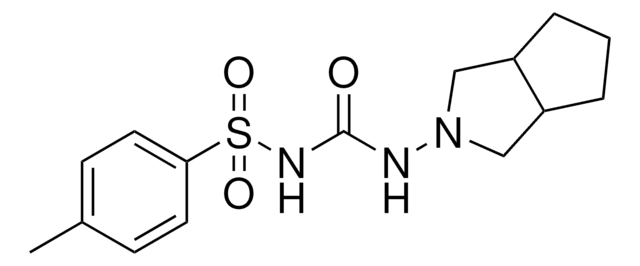G0639
Glybenclamide
≥99% (HPLC)
Synonyme(s) :
5-Chloro-N-[4-(cyclohexylureidosulfonyl)phenethyl]-2-methoxybenzamide, Glyburide, N-p-[2-(5-Chloro-2-methoxybenzamido)ethyl]benzenesulfonyl-N′-cyclohexylurea
About This Item
Produits recommandés
Pureté
≥99% (HPLC)
Solubilité
ethanol: 2 mg/mL
DMSO: soluble
H2O: insoluble
Auteur
Roche
Température de stockage
2-8°C
Chaîne SMILES
COc1ccc(Cl)cc1C(=O)NCCc2ccc(cc2)S(=O)(=O)NC(=O)NC3CCCCC3
InChI
1S/C23H28ClN3O5S/c1-32-21-12-9-17(24)15-20(21)22(28)25-14-13-16-7-10-19(11-8-16)33(30,31)27-23(29)26-18-5-3-2-4-6-18/h7-12,15,18H,2-6,13-14H2,1H3,(H,25,28)(H2,26,27,29)
Clé InChI
ZNNLBTZKUZBEKO-UHFFFAOYSA-N
Informations sur le gène
human ... ABCC8(6833) , KCNH2(3757) , KCNJ1(3758) , KCNJ11(3767)
rat ... Kcnj1(24521)
Vous recherchez des produits similaires ? Visite Guide de comparaison des produits
Application
- as a positive control oral hypoglycemic drug to study the hypoglycemic effects of Chlorella in streptozotocin-induced diabetic mice
- as a K+ATP channel antagonist in canine with induced acute hypoxia
- as an inhibitor of cystic fibrosis transmembrane conductance regulator (CFTR) channel in fetal distal lung epithelial (FDLE) cells
Actions biochimiques/physiologiques
Caractéristiques et avantages
Mentions de danger
Conseils de prudence
Classification des risques
Aquatic Chronic 4
Code de la classe de stockage
11 - Combustible Solids
Classe de danger pour l'eau (WGK)
WGK 2
Point d'éclair (°F)
Not applicable
Point d'éclair (°C)
Not applicable
Équipement de protection individuelle
Eyeshields, Gloves, type N95 (US)
Certificats d'analyse (COA)
Recherchez un Certificats d'analyse (COA) en saisissant le numéro de lot du produit. Les numéros de lot figurent sur l'étiquette du produit après les mots "Lot" ou "Batch".
Déjà en possession de ce produit ?
Retrouvez la documentation relative aux produits que vous avez récemment achetés dans la Bibliothèque de documents.
Les clients ont également consulté
Contenu apparenté
Discover Bioactive Small Molecules for ADME/Tox
Notre équipe de scientifiques dispose d'une expérience dans tous les secteurs de la recherche, notamment en sciences de la vie, science des matériaux, synthèse chimique, chromatographie, analyse et dans de nombreux autres domaines..
Contacter notre Service technique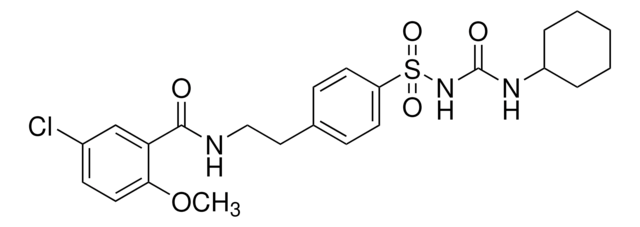
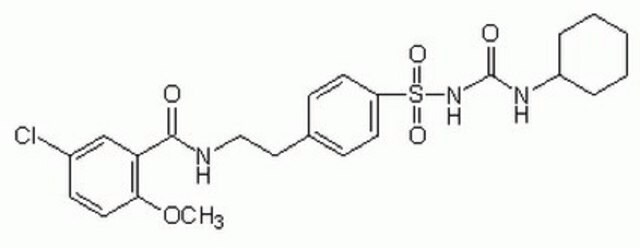



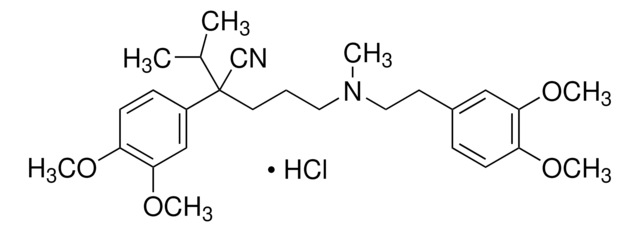
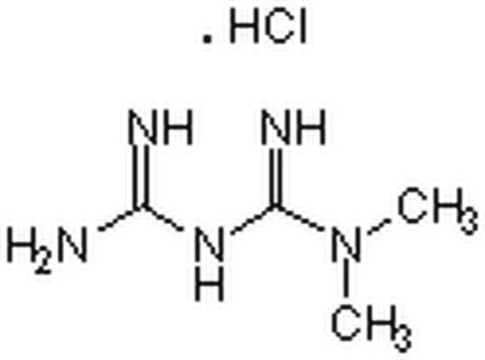
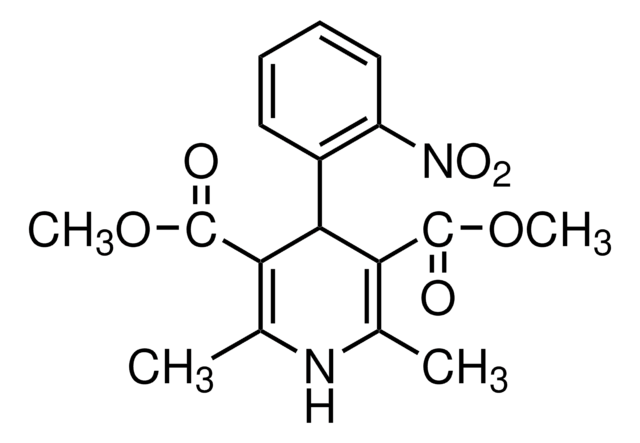
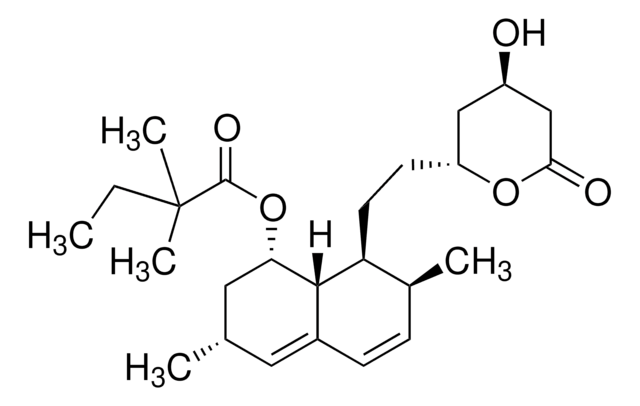
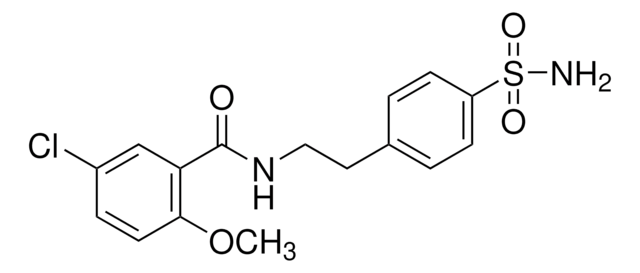


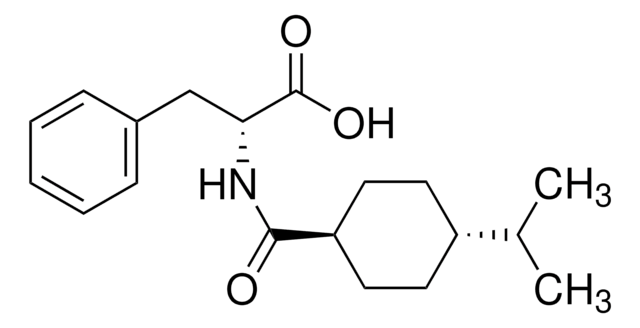

![1H-[1,2,4]Oxadiazolo[4,3-a]quinoxalin-1-one powder](/deepweb/assets/sigmaaldrich/product/structures/764/715/605dc5a5-0864-471b-a71e-bd2aa6553c1d/640/605dc5a5-0864-471b-a71e-bd2aa6553c1d.png)
